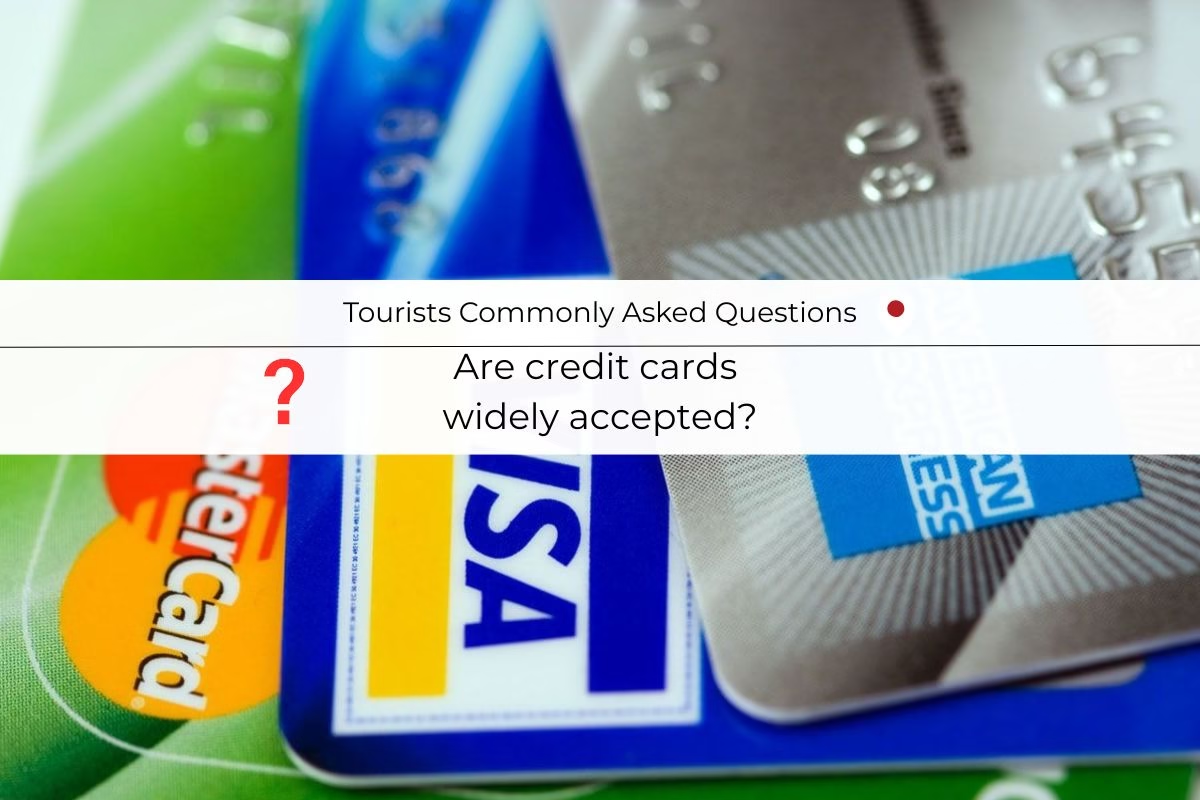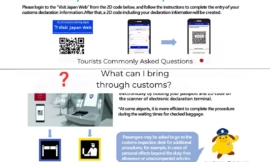Are credit cards widely accepted? in Japan
On the question – are credit cards widely accepted when it comes to paying for things in Japan, credit cards are becoming more commonly accepted, but it’s still not as universal as you might expect, especially outside of the major cities. Japan remains a cash-driven society, and many places prefer physical yen over plastic. However, this doesn’t mean you won’t find credit card-friendly spots, especially in tourist hotspots and larger urban centers like Tokyo, Kyoto, and Osaka.

Let’s dive into the question – ‘Are credit cards widely accepted? in Japan
Credit Cards in Japan: A Balancing Act
In cities like Tokyo, Osaka, and Kyoto, credit cards are widely accepted in major hotels, department stores, shopping malls, and international chain restaurants. Most convenience stores, like 7-Eleven and Lawson, also accept major credit cards, making it relatively easy to get around without cash in these bustling urban environments.
However, there are still many areas where credit cards may not be accepted, especially when venturing into more traditional or rural parts of Japan. Smaller restaurants, mom-and-pop shops, local markets, and especially places like temples or shrines might only accept cash. This is particularly true in the case of small eateries or family-owned businesses that don’t have the infrastructure to process credit cards.
Additionally, small transportation vendors, such as those in more remote train stations or bus stations, may only accept cash. Even if you’re using the JR trains or Shinkansen, you’ll often need cash for buying tickets or snacks from the station shops.
Cash: The Lifeblood of Japan
Despite the increasing acceptance of credit cards, cash still reigns supreme in Japan. The culture of using physical yen is deeply ingrained, and it’s often the most straightforward way to pay. This becomes especially important when you travel to smaller towns, countryside, or traditional inns like ryokan, where card payments are rare.
Japan’s ATMs are generally available for withdrawing cash, and places like 7-Eleven offer easy access to foreign bank cards, though it’s always a good idea to alert your bank that you’ll be traveling to avoid any issues with ATM withdrawals. While Japan is incredibly safe, keeping cash on hand is necessary for the many non-card transactions you’ll encounter.
Important tip: Be sure to have small denominations of cash, as it can be difficult to break larger bills (such as 10,000 yen notes) in some shops. Check out the daily exchange rate with the Bank of Japan.
Would you recommend bringing Travelers Checks, Cash or CC?
Travelers Checks: A Thing of the Past?
Travelers checks used to be a staple for international travel, but in Japan, they’ve largely become obsolete. Most banks and currency exchange services no longer cash them, and their use has dramatically declined in favor of ATMs and credit cards. In fact, Japan is so well-equipped with cashless systems like IC cards (Suica, Pasmo) and mobile payments that travelers checks are unlikely to serve much of a purpose for your trip.
If you’re really set on the idea of having a secure way to carry money, prepaid travel cards or forex cards loaded with yen are a more viable option. These are easier to use and more commonly accepted than travelers checks, especially if you’re concerned about the safety of carrying cash.
What Should You Bring?
Considering Japan’s unique blend of modern amenities and traditional practices, the best approach to money is a combination of options:
- Cash: Always keep cash on hand for small purchases, local shops, or rural areas where credit cards aren’t accepted. It’s generally advisable to carry a reasonable amount of yen, but Japan’s safe environment means you won’t need to carry large sums.
- Credit Cards: Bring a credit card for larger purchases, hotel bookings, or when staying in big cities. Visa, MasterCard, and sometimes American Express are widely accepted, but always check ahead if you’re heading somewhere more remote.
- IC Cards: Consider investing in an IC card like Suica or Pasmo, which can be used for transportation and purchases in convenience stores, vending machines, and even some restaurants. This is an excellent way to avoid constantly withdrawing cash and makes traveling on public transportation much more convenient.
Final Thoughts
Therefore, the question of ‘Are credit cards widely accepted?’, in summary, while Japan is becoming more credit card-friendly, it’s still very much a cash society, and being prepared with a mix of yen, credit cards, and an IC card will make your experience much smoother. Travelers checks are generally not recommended due to their declining relevance in today’s digital age. By carrying both cash and cards, you’ll be able to seamlessly navigate both the modern cityscape and the more traditional spots, ensuring a stress-free and enjoyable trip.


